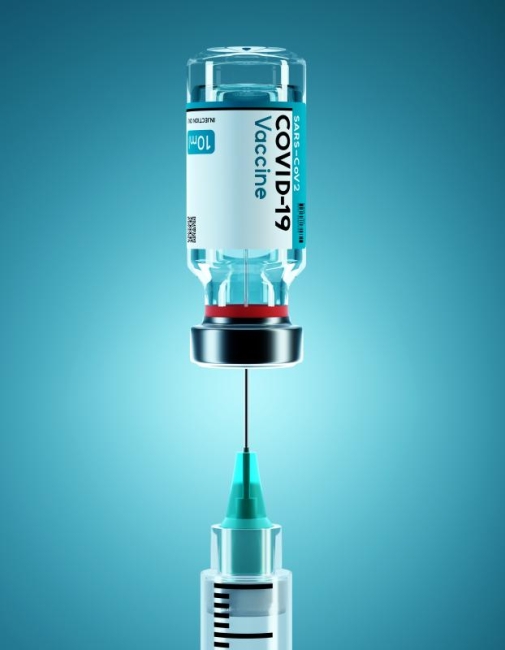You have /5 articles left.
Sign up for a free account or log in.

solarseven/iStock/Getty Images Plus
The Association of American Medical Colleges is urging medical schools and teaching hospitals to mandate COVID-19 vaccination for their employees.
“We did not come to this recommendation lightly, but instead considered the large and convincing body of evidence on the safety and efficacy of the COVID-19 vaccines that led the Food and Drug Administration (FDA) to grant emergency use authorizations (EUAs),” the association said in a statement July 16. “The strength of this data collected prior to the EUAs, along with confirmation of the vaccines’ effectiveness in the real-world in countries around the world, supports this recommendation.”
Janis M. Orlowski, chief health care officer for the medical college group, said if teaching hospitals enact the recommendation, students studying a variety of health-care fields -- not just medicine -- would be required to be vaccinated to undertake their clinical placements.
“If you talk about hospitals and health systems, the issue is patients first,” Orlowski said. “If we say patients first, then what we have to do is provide the absolute safest environment for the patient, and that means that health-care workers should be vaccinated.”
Orlowski said the feedback from members so far has been "100 percent thumbs-up."
"Everyone that I’m talking to is thinking about how to do this and the appropriate steps to notify their employees," she said.
Some teaching hospitals and academic health systems have already mandated COVID-19 vaccinations for staff.
Houston Methodist Hospital was early to mandate vaccines for employees in April. The hospital is affiliated with Weill Cornell Medicine, in New York; Texas A&M University; and the University of Houston.
The University of Pennsylvania Health System has mandated vaccines for employees, as has University of Chicago Medicine, which said in an announcement last week that it "joins other hospitals across the country that have looked at the data on safety and effectiveness of the available COVID-19 vaccines in determining the mandate, which is consistent with the current vaccination policy that already requires employees be vaccinated against influenza every year."
Mass General Brigham, a health-care system affiliated with Harvard Medical School, has said it will require vaccinations after one of the three vaccines currently approved under an EUA receives full approval from the FDA.
Orlowski said in the AAMC statement, "we tried to make it very clear that there was not a need to wait for full approval" from the FDA.
More than 500 universities, including many with medical schools, are also requiring the vaccine for students or employees. Just this week, a federal judge upheld Indiana University's vaccine requirement after several students filed suit arguing a mandate infringed upon their constitutional rights.
Orlowski said to her knowledge the AAMC is the first health-care education association to recommend requiring COVID-19 vaccines.
The American Association of Colleges of Nursing has not made a similar recommendation, but it has been advocating for the involvement of nursing students and faculty in the COVID-19 vaccination campaign.
The AAMC statement notes medical schools and teaching hospitals might be constrained from implementing a vaccine mandate depending on state law.
“We are aware of the sensitive nature of this recommendation and understand that it must be made on an institution-by-institution basis, subject to legally required exceptions and consistent with state law,” the statement says. “However, for the safety of our patients, communities, health care personnel, faculty, and students, we encourage our members to require vaccinations for employees while working with local public health officials as appropriate.”
Orlowski said the statement was prompted by concerns about the slowdown in the pace of vaccinations and the failure to meet President Biden’s goal of 70 percent of adults receiving at least one vaccination shot by the Fourth of July -- as well as concern about the rapid spread of the highly transmissible Delta variant.
Rochelle Walensky, director of the Centers for Disease Control and Prevention, told members of Congress at a Senate committee hearing this week that the Delta variant now accounts for 83 percent of sequenced cases, "a dramatic increase, up from 50 percent the week of July 3."
Walensky said the Delta variant accounts for an even higher percentage of cases in areas with low vaccination rates.
"The overwhelming majority of deaths from COVID-19 are now occurring in unvaccinated people," she said.
"The Delta variant has taken over," said Orlowski, "and the numbers of cases and deaths have gone up almost exclusively in individuals who are not vaccinated. Because we are below 70 percent, we really are very concerned about what this means for the fall."




